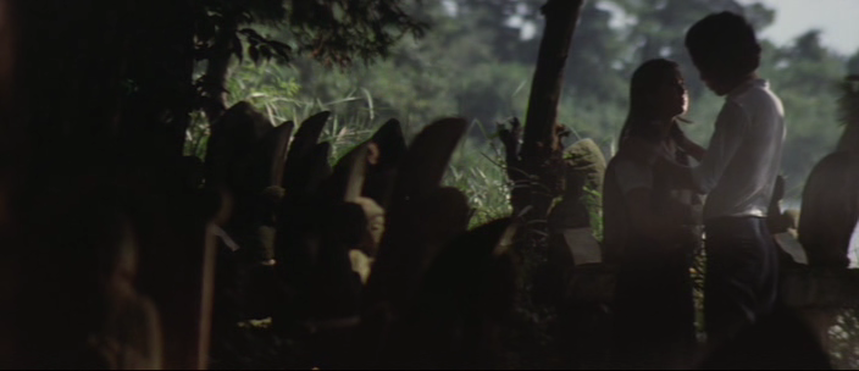|
Toshio Matsumoto's The War of the 16 Year Olds encapsulates the particular epoch in Japan while being transcendent in its subtle critique of nationalism as it exhibits the longstanding toxicity of war. Set in the late 60s/early 70s, the war has been over, the last bomb was dropped decades ago, yet the joyous occasion of the war's official end only offers a temporary reprieve as the psychological and emotional wounds of such conflict reverberate through the national psyche for a multitude of generations, these wounds being more laborious, more acute than the blunt, quick, exacting threat of physical violence which has long sense dissapated. Juxtaposing the older generation, one which was born or lived through wartime, with the younger generation, whose only experience lies in the despondency and stoic mystery which subtly manifests itself through their elders, Matsumoto's The War of the 16 Year Olds' paints a haunting portrait of a nation bifurcated by trauma, one which unwillingness for the discursive only breeds further unease and emotional conflict. Providing insight into how the informative lessons of history themselves are often in conflict with the emotional nature of the human psyche, Matsumoto's film is a revelatory expose into the psychological nature of conflict, exhibiting how trauma and despair are strong forces of nature, ones which often restrict the psychological aspects of intellectual inquiry, repressing the possibilities from properly learning from tragedy and bloodshed of the past conflict due to emotional pain. Matsumoto's direction is impeccable for the material, employing heavy use of canted angles, obstructed compositions, and impressionist lighting techniques, all which combine to create an aesthetic which broods mystery and unease in the viewer, evoking the film's foreboding, supernatural nature, doing so early when the general sensibilities of the feature are unclear from a narrative perspective. What perhaps is most pertinent and essential to The War of the The 16 Year Olds is it never divulges into cynicism, examining trauma from afar but maintaining a sense of faith or optimism in the future generations, which is perhaps best illustrated by the tumultuous central relationship of the story which culminates in an honest, mature, yet idyllic finale. A tale first and foremost about the necessity of continuation and ultimately survival in times of extreme trauma, The War of the 16 Year Olds is a haunting reflection on the continuous, lasting toxicity war has on humanity.
0 Comments
Leave a Reply. |
AuthorLove of all things cinema brought me here. Archives
June 2023
|

 RSS Feed
RSS Feed
